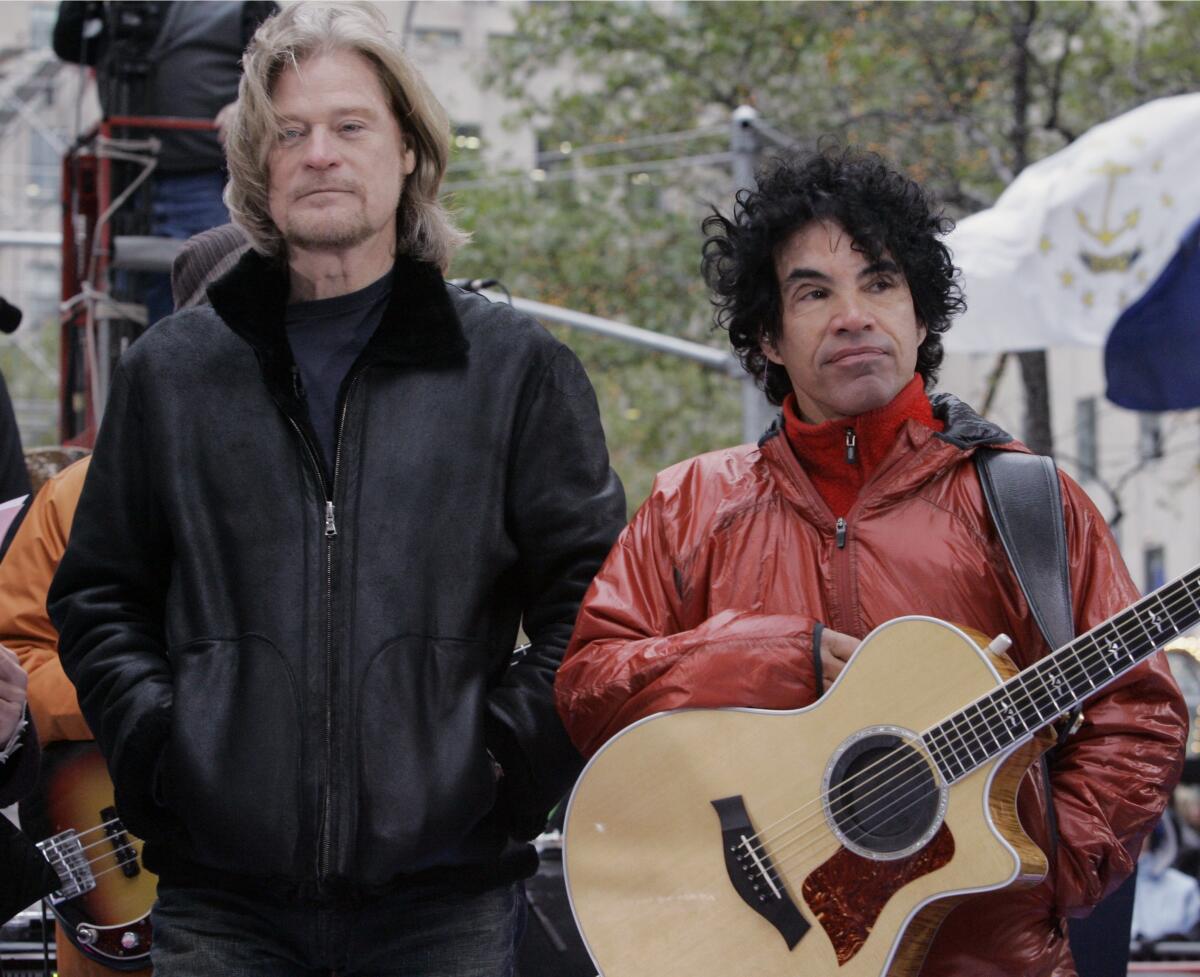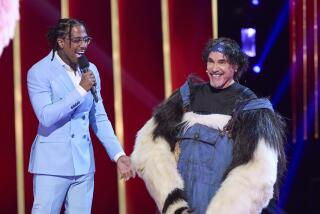Daryl Hall’s reason for restraining order against John Oates is revealed in new documents

- Share via
The details of Hall & Oates’ mysterious legal battle and restraining order have been revealed.
Earlier this month, Daryl Hall sued John Oates, his former music partner, because Oates allegedly planned to sell off his share of a joint venture to a third party. Hall argued that that would violate the terms of a business agreement the Hall & Oates duo had reached. A Nashville chancery court judge swiftly blocked the sale while legal proceedings, and a previous arbitration, continue.
When Hall filed the suit, he also requested the restraining order against Oates, which the judge issued the following day. Chancellor Russell Perkins ruled that Oates and other involved parties in his trust cannot close the sale of their share of Whole Oats Enterprises LLP to Primary Wave IP Investment Management LLC until an arbitrator in the previously filed case assesses the matter, or until the judge’s order expires — usually within 15 days, unless an extension is given.
An order issued last Wednesday by the judge allowed more of the legal filing, which was initially sealed, to be made public. But many details about the pair’s business agreement and the proposed sale are still murky. Hall’s legal team wanted the case sealed, arguing that the dispute is private and includes confidential terms concerning a confidential arbitration process.
Daryl Hall has a restraining order against John Oates as part of a sealed legal battle. It’s unclear what one half of Hall & Oates wants the other to stop doing.
The “Maneater” hitmakers had entered into a business agreement in October 2021 over Whole Oats Enterprises LLP, a limited liability partnership owned and controlled by the duo. And although the publicly released version of the lawsuit didn’t specify what’s at stake in the sale, Primary Wave has owned a “significant interest” in Hall and Oates’ song catalog for more than 15 years.
The lawsuit contends that on Nov. 9, Hall opened an arbitration process against Oates and the other defendants in the lawsuit, Oates’ wife Aimee Oates and business manager Richard Flynn, in their roles as co-trustees of Oates’ trust.
The lawsuit says Oates’ team entered into a letter of intent with Primary Wave Music for the sale and alleges further that the letter makes clear that the duo’s business agreement was disclosed to Primary Wave Music, in violation of a confidentiality provision.
“Thus, the entire Unauthorized Transaction is the product of an indisputable breach of contract,” the lawsuit states.
Attorneys for both Hall and Oates did not immediately respond to The Times’ request for comment. The case will be taken up at a Nov. 30 court hearing.
On the eve of a new collection of solo material, Daryl Hall holds forth on everything from Joni Mitchell and Donald Trump to his possibly Oates-less future.
Together Hall & Oates have had 29 hit songs, making them widely known as the bestselling singing duo of all time. The five solo albums Hall released, starting with “Sacred Songs” in 1980, include two Top 40 singles.
Despite their success as partners, Hall told The Times last year that being part of a music duo is “quite annoying.”
“I don’t like it. John and I call our touring company Two-Headed Monster, because it is that,” Hall said. “It’s very annoying to be a duo, because people always say, ‘Oh, you’re the tall one, you’re the short one. You’re the one that sings, you’re the one that doesn’t sing.’ You’re always compared to the other person. It works with comedy entities, like Laurel and Hardy or Abbott and Costello, but with music, it’s f— up, actually.”
Hall said being part of a duo strips a person of individuality, because everything either one does is juxtaposed against the other. The “Someone Like You” hitmaker further griped about the public’s perception that if a duo is “not working, they must be fighting.”
The Associated Press contributed to this report.
More to Read
The biggest entertainment stories
Get our big stories about Hollywood, film, television, music, arts, culture and more right in your inbox as soon as they publish.
You may occasionally receive promotional content from the Los Angeles Times.













